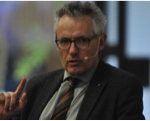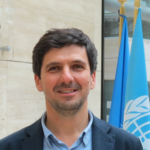The Platform for Agricultural Risk Management (PARM) along with the Forum for Agricultural Risk Management in Development (FARM-D) organized a webinar on “Information Systems for Agricultural Risk Management”, on 27th January 2017. The webinar was an occasion to discuss with the author of the study Alberto Garrido the findings of the recent PARM assessment study on 7 African countries.
About the Webinar:
Information is the main raw material for agricultural risk management (ARM). Without information there is no way to assess the likelihood and severity of different risks, no way to be prepared in advance or improve resilience, nor to agree on how to manage or transfer the risk to others. Information from different sources on markets, climate and weather, diseases, inputs and technologies is the “light” that is needed to manage risks. Information systems play a broader role for agriculture, for good business practices, to improve livelihoods, increase productivity and ensure efficient value chains. This is a big opportunity for agricultural risk management: for the insurance industry to develop new products and fill information gaps; for the financial institutions to be able to manage the risks from the agricultural sector; for farmers to improve their resilience and enhance their investments in the farm and in the household; for governments to better design their policies.
In this context, PARM, to respond to the Government demands, has committed a study on “Informational Assessment of Agricultural Risk Management Information Systems (ARM-IS)” in 7 Africa Countries: Cabo Verde, Cameroon, Ethiopia, Mozambique, Niger, Senegal and Uganda. The purpose of the study is to investigate the availability and quality of information for agricultural risk management purposes and the timely and useful access by stakeholders at micro-meso-macro[1] level. At country level, the scenario reflects often information systems thematic-focused and not integrated and harmonized in a more holistic system. There are significant gaps in information collection and access that often occur in a systematic manner across countries. These gaps create asymmetries and inefficiencies in the management of risks in the agriculture sector.
[1] Micro level refers to farmers, households and local communities; meso level refers to firms and supply chain actors; macro level refers to governments.
The webinar was also an occasion to prepare to the Workshop: KM Event on Information Systems: applications and innovations for risk management that was organized by PARM on 31st January 2017 hosted by IFAD.
WEBINAR REPLAY
About the Speakers:

Dr. Alberto Garrido
is Professor of Agricultural and Natural Resource Economics and Vice-Rector of Quality and Efficiency at the Universidad Politécnica de Madrid (UPM). Has a Bachelor Degree and MSc in Agricultural Engineering; a Masters in Agricultural and Natural Resource Economics from the University of California, Davis (1992) and a Doctoral Degree in Agricultural Economics from the UPM (1995). Has supervised 16 Doctoral Dissertations, published 160 references, of which 70 are academic articles and 15 books. Has 20 years of experience in leading research projects and grants. His research focuses on agricultural risks and insurance, natural resource economics and policy and water policy Has consulted for the main international organisations (FAO, BID, The World Bank, IFAD), several national governments of Europe, Asia and America, and numerous private companies and foundations.

Facilitator Jesús Antón
is Senior Programme Manager of the Platform for Agricultural Risk Management (PARM). This G8/G20 initiative hosted by the International Fund for Agricultural Development (IFAD) promotes risk assessment and risk management policies in nine African countries. Before IFAD and until August 2014, he worked as Senior Economist in the Trade and Agriculture Directorate of the Organization for Economic Cooperation and Development (OECD). He has also been advisor in the Spanish Ministry of Agriculture (2005-07). He holds a PhD in Economics (UAM, Madrid), an MSc in Economics (London School of Economics) and a Master from College d’Europe (Belgium). He has lectured on economics and agricultural policy in Universities such as UCM, ICADE, ESSEC and CIHEAM. He has published in OECD and academic journals on topics related with modeling and evaluation of agricultural policies, international trade and WTO, decoupling, common agricultural policy, risk management, insurance, food security and climate change.
READ MORE
- Information System for Agricultural Risk Management Study – Executive Summary Report
- IS-ARM Country Policy Briefs

